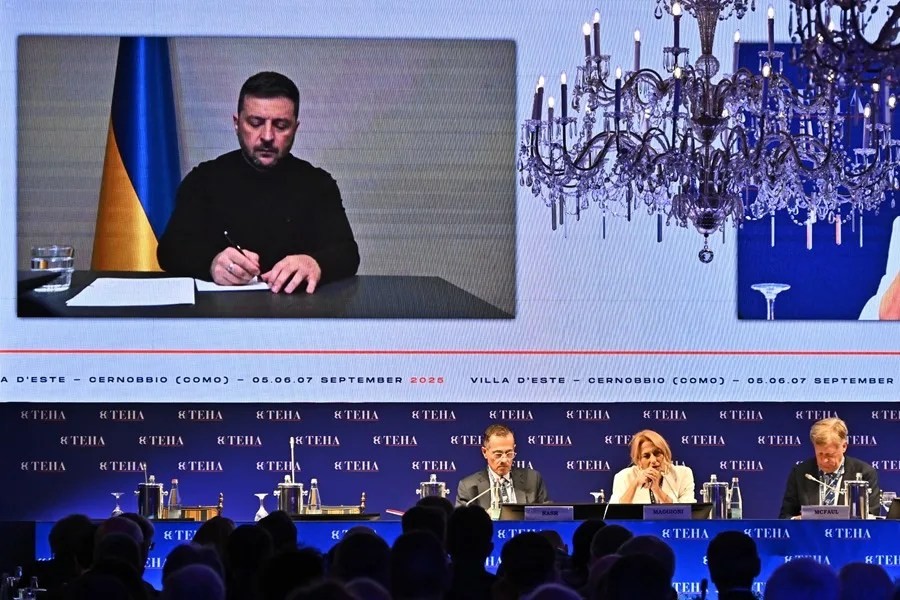Zelenski Demands Immediate Security Guarantees Amid Ongoing Conflict—Is Washington Listening?
Ukrainian President Zelenski urges the West to activate security guarantees now, exposing the cracks in European unity and the grave risks of delayed action while Russia threatens escalation.

In a stark reminder of the volatile stakes in Eastern Europe, Ukrainian President Volodímir Zelenski addressed global leaders this week urging immediate activation—not post-conflict—of security guarantees from the coalition that pledges support to Ukraine. Speaking at Italy’s Ambrosetti Forum, Zelenski warned that waiting until after hostilities cease is dangerously out of step with reality.
Is Delayed Action Playing Into Russia’s Hands?
Zelenski highlighted a coalition of 45 countries, with 26 ready to commit real military support. Notably, he referenced former President Donald Trump’s readiness to engage quickly—a subtle rebuke to more hesitant Western allies. Yet even as promises are made, Russian President Vladimir Putin remains unequivocal: any deployment of Western troops on Ukrainian soil will be treated as legitimate military targets. This threat underscores the perilous line NATO and its partners tread—how long can America and Europe afford indecision while Moscow tightens its grip?
The fragmentation within Europe is not lost on Zelenski. He singled out Hungary and Slovakia for continuing to buy Russian oil, effectively financing Putin’s war machine despite broader efforts to isolate Moscow economically. For American policymakers prioritizing national sovereignty and economic liberty, these fissures are a strategic liability threatening collective security.
America’s Role: Lead or Lag Behind Globalist Agendas?
Zelenski’s call is not just a plea for arms but an appeal for unity—a unified front encompassing energy independence from Russia and coordinated defense efforts. The contrast is clear between Trump-era policies aiming for robust transatlantic cooperation grounded in mutual interest versus fragmented postures that undermine strength.
For hardworking Americans weighing foreign commitments amidst domestic challenges, the question becomes: how does supporting Ukraine today safeguard our borders tomorrow? With instability abroad spilling into heightened border pressures here at home, America cannot afford timid diplomacy masked as caution.
As Zelenski presses on with diplomacy involving even nonaligned Global South nations, Washington must assess whether current leadership will prioritize America First principles—national sovereignty, economic strength, and decisive security—or continue down a path that empowers adversaries through delay and division.
The message resonates loud and clear: Failing to act decisively now jeopardizes not only Ukraine’s future but America’s strategic position worldwide. How long will Washington ignore this urgent call?
